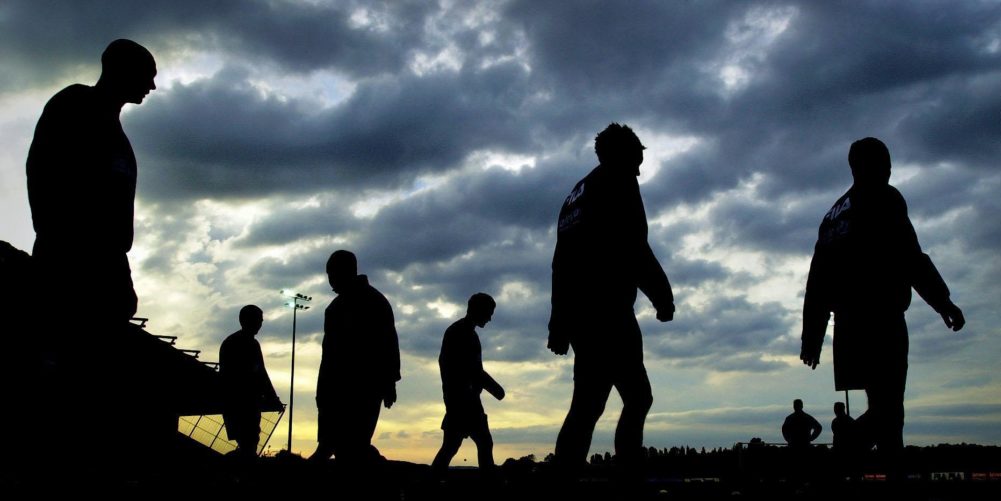Some thoughts during Mental Health Awareness Week from Hitchin Town club chaplain Nick Smith

I'M sure we've all had that experience of emotional release out there on the terraces or in the stands of Top Field. Whatever stresses we're facing at work or home, we turn up to cheer on the team, do our best to put off the opposition, and maybe even politely express to the match officials that we disagree with their decision.
It's probably the only place where grown adults can freely shout and cheer until we run the risk of rupturing a vocal cord.
But at the end of 90 minutes, even if we've lost, we usually feel that little bit lighter inside; that little bit better for having been to the game and let off some steam.
Stands up and down the country have been empty for a long time now. Which means football fans haven't had that release. It's little wonder, then, that in studies nearly a third of football fans have reported that the loss of football has affected their mental health. It's not just about the cathartic release of pressure, either: for many, going to the game is where their socialising happens. It gives people a sense of community, even identity.
During the pandemic, as well as the loss of football, people have experienced isolation, uncertainty, boredom, and worry…all of which have contributed to a massive rise in mental ill-health across all age groups.
This week is Mental Health Awareness Week and in these challenging times it's an important week for all of us, whether we currently suffer from mental ill-health or not. It's important for us, as part of a football club family, to be aware of our own mental health and also the mental health of our fellow supporters.
The most basic – perhaps the most important – thing we can do is TALK. People are often afraid to start talking about how they feel. There's still sometimes that bit of fear of speaking about mental ill-health.
Talking about our experiences with somebody we trust can make a massive difference. Talking honestly to someone is another one of the ways we can release that build-up of pressure in our lives. So, if you're feeling the strain, reach out to somebody: a friend, a family member, a fellow supporter, or even the club chaplain.
And of course, the other side of ‘talk' is LISTEN. If you speak to somebody who is struggling, listening carefully and non-judgmentally can be a huge help to them. It's not your job to come up with wise answers or solutions to people's problems. But anyone can listen, can take the time to hear what a person has to say and gently ask a few questions.
I can't wait to be back in the terrace, behind the goal, at Top Field. I've missed the chance to cheer and shout. Going to games might put a strain on my vocal cords, but it's great for my mental health. Life has been that bit harder without it. So in this Mental Health Awareness Week, let's all take some time to think about mental health.
About how we can look after our own mental health, and how we can be supporters not just of the team on the pitch, but of our fellow fans as well.
To read the full version of this article please visit Hitchin Town's website If you would like some helpful information about mental health problems visit at https://www.mind.org.uk/information-support.






















